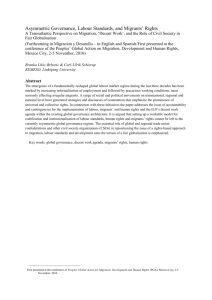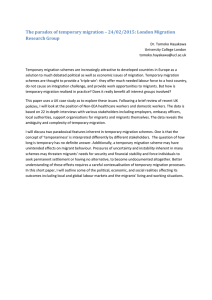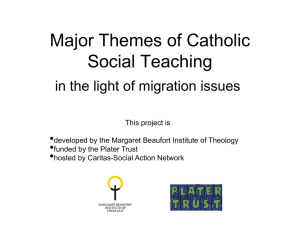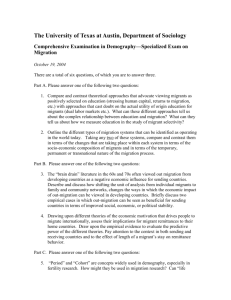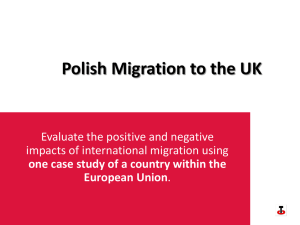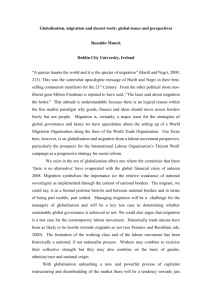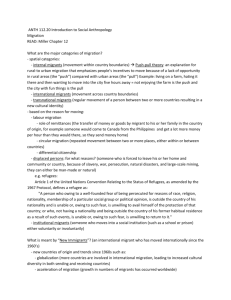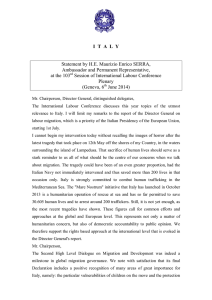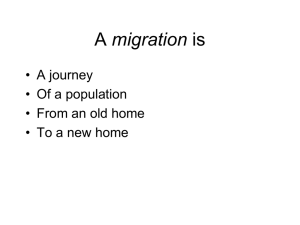Migrant impact on UK jobs and wages not harmful
advertisement
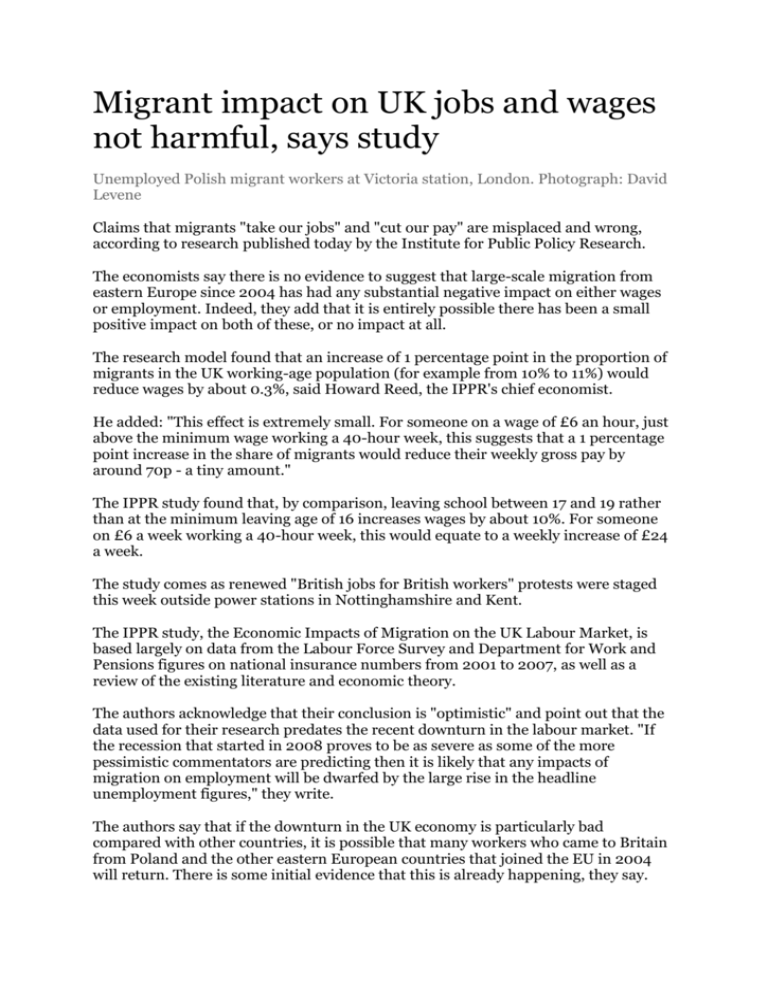
Migrant impact on UK jobs and wages not harmful, says study Unemployed Polish migrant workers at Victoria station, London. Photograph: David Levene Claims that migrants "take our jobs" and "cut our pay" are misplaced and wrong, according to research published today by the Institute for Public Policy Research. The economists say there is no evidence to suggest that large-scale migration from eastern Europe since 2004 has had any substantial negative impact on either wages or employment. Indeed, they add that it is entirely possible there has been a small positive impact on both of these, or no impact at all. The research model found that an increase of 1 percentage point in the proportion of migrants in the UK working-age population (for example from 10% to 11%) would reduce wages by about 0.3%, said Howard Reed, the IPPR's chief economist. He added: "This effect is extremely small. For someone on a wage of £6 an hour, just above the minimum wage working a 40-hour week, this suggests that a 1 percentage point increase in the share of migrants would reduce their weekly gross pay by around 70p - a tiny amount." The IPPR study found that, by comparison, leaving school between 17 and 19 rather than at the minimum leaving age of 16 increases wages by about 10%. For someone on £6 a week working a 40-hour week, this would equate to a weekly increase of £24 a week. The study comes as renewed "British jobs for British workers" protests were staged this week outside power stations in Nottinghamshire and Kent. The IPPR study, the Economic Impacts of Migration on the UK Labour Market, is based largely on data from the Labour Force Survey and Department for Work and Pensions figures on national insurance numbers from 2001 to 2007, as well as a review of the existing literature and economic theory. The authors acknowledge that their conclusion is "optimistic" and point out that the data used for their research predates the recent downturn in the labour market. "If the recession that started in 2008 proves to be as severe as some of the more pessimistic commentators are predicting then it is likely that any impacts of migration on employment will be dwarfed by the large rise in the headline unemployment figures," they write. The authors say that if the downturn in the UK economy is particularly bad compared with other countries, it is possible that many workers who came to Britain from Poland and the other eastern European countries that joined the EU in 2004 will return. There is some initial evidence that this is already happening, they say. They also concede that their study, although based on the best available data in the UK, was unable to assess the impact of migration on the labour market at a local level with any real rigour or detail. They conceded that it was entirely possible that there had been short-term negative impacts on wages and jobs from migration in particular local areas. "We simply do not know for sure," they say. Home Office migration figures published this week showed a 47% drop in the number of economic migrants coming to Britain from Poland and other eastern European countries as the recession began to bite in the last three months of 2008. guardian.co.uk © Guardian News and Media Limited 2009
